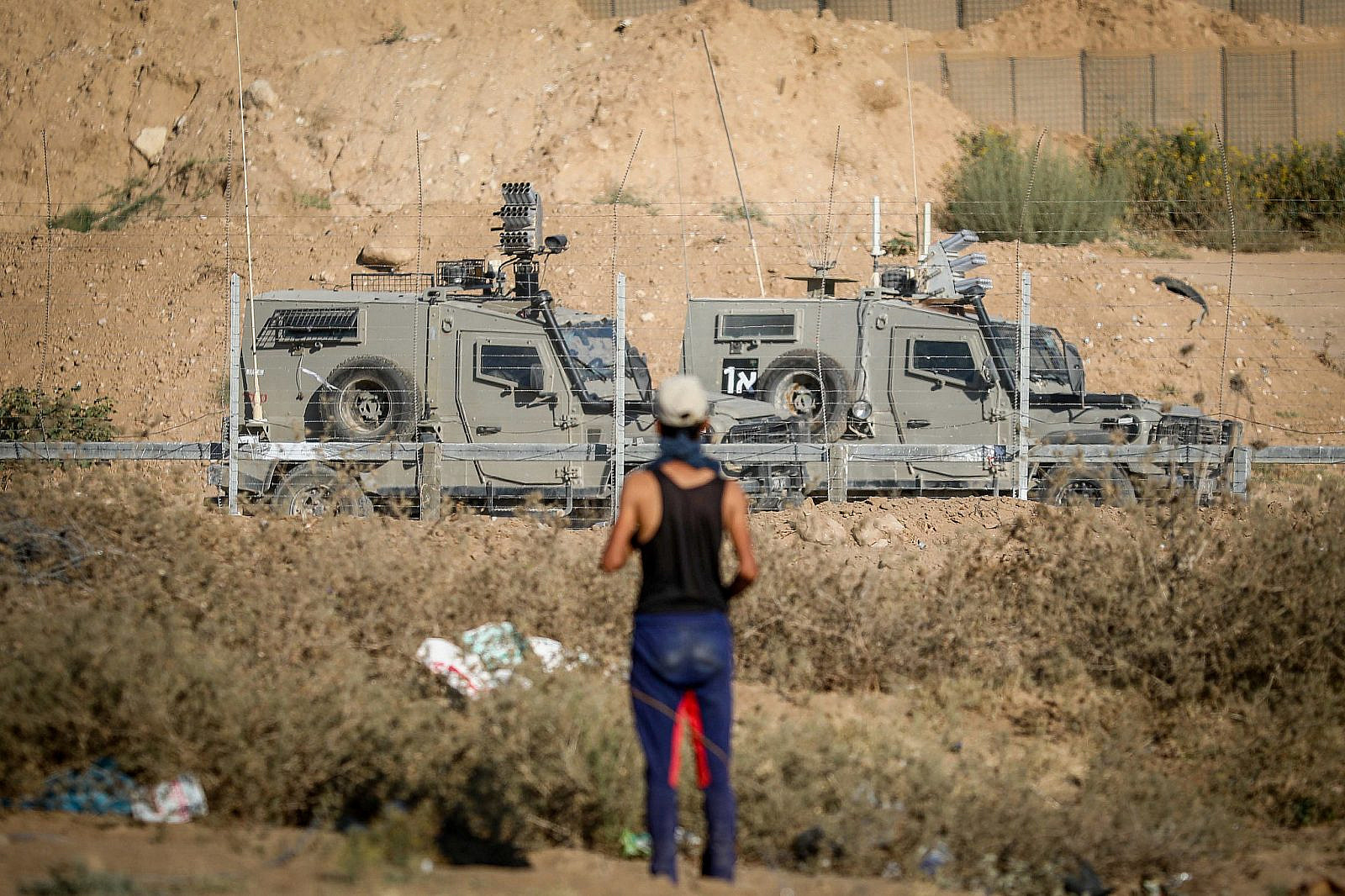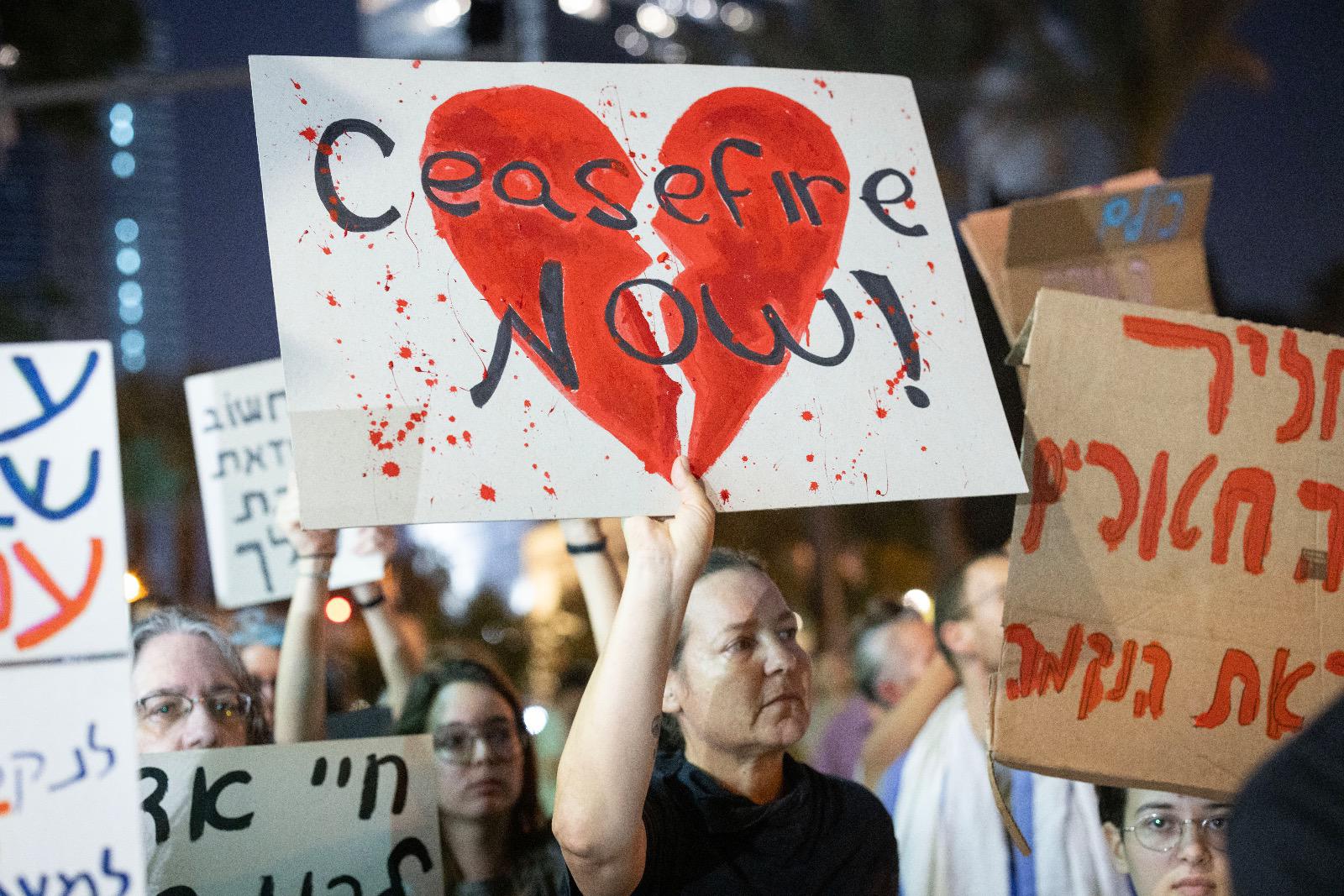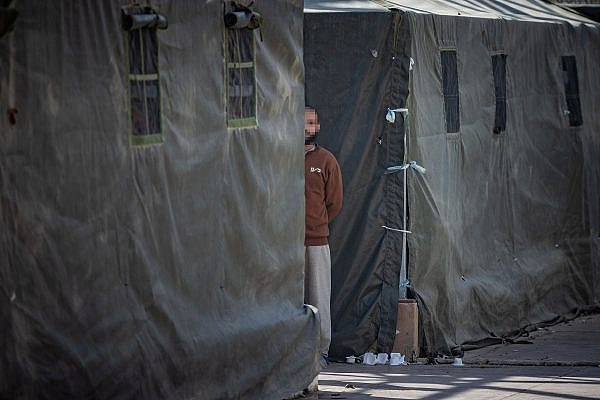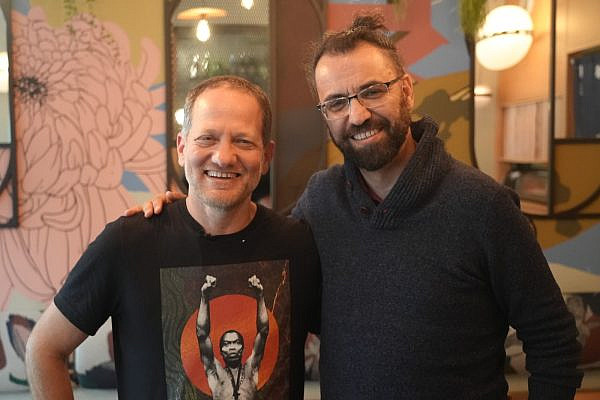The slaughter of 1,200 women and men, children and elderly, in southern Israel last month, and the kidnapping of around 240 hostages, has left Israeli society in a state of profound speechlessness. There is an overwhelming sense of pain, an inability to articulate our thoughts, and a difficulty to grasp our harsh reality.
Much like any person or community suffering from post-trauma, October 7 immediately triggered for Israeli Jews memories of past traumas: the late 19th-century pogroms in Eastern Europe, the 1948 War, and more saliently, the Holocaust. The Israeli media also quickly drew parallels to the 1973 Yom Kippur War, evoking the notion of a “surprise attack” to explain the failure of the government and the army to be adequately prepared for such an event.
Much of this discussion has lamented the collapse of a “conception” — a certain interpretation of the situation on the ground and Israel’s control therein. But what collapsed on October 7 would better be described as an illusion, and that illusion is the Gaza prison: the nonsensical belief that, with enough military might, it would be possible to hold more than 2 million people under an endless siege without it leading to an explosion.
This illusion, rooted in an inability to see reality clearly, blinded the Israeli security establishment to recent developments hinting at a disruption of the “status quo.” They failed to perceive that Hamas was building its own drone air force, a naval force, and ground commando units, rather than being solely reliant on a rocket supply produced by an underground military industry. They deluded themselves into thinking that Hamas could be bought with Qatari cash and with work permits for a few thousand Palestinian laborers, when hundreds of thousands of others are left languishing unemployed in the Strip.
Moreover, Israel failed to understand the significance of the Palestinian uprising of May 2021, often referred to as the “Unity Intifada.” The uprising began in Jerusalem with demonstrations against Israeli police brutality at Damascus Gate and settler takeovers of Palestinian property in the Sheikh Jarrah neighborhood, which spread to Palestinians living in “mixed cities” inside Israel, before Hamas joined the fray from Gaza.

From the militant group’s perspective, when they fired rockets toward Jerusalem in response to repeated Israeli police raids of Al-Aqsa Mosque, they were attempting to seize the leadership of the Palestinian struggle amid the deterioration of conditions for Palestinians across the territories under different forms of Israeli control. And they knew that Israel would respond with the usual “mowing the grass” policy — harshly bombarding the besieged Strip — thus evoking global sympathy and identification with the suffering of Palestinians in Gaza.
Our leaders failed to understand that, according to Hamas’ interpretation of those events, the Islamist movement not only came out victorious, but also managed to deter the Israeli army while uniting the Palestinians behind its leadership. Nor could our leaders comprehend that Israel’s divide-and-rule policy even within Gaza — targeting Islamic Jihad while signaling to Hamas not to intervene — would be interpreted as successful deterrence.
Marketing delusions
So if illusion stems from weakness, where does Israel’s weakness come from? After all, Israel undeniably possesses immense military strength, and the unilateral withdrawal of troops and settlers from Gaza in 2005 bought it international approval to use that strength in the Strip without restrictions. The answer is that Israel’s weakness is not military, but political; that despite the resounding calls to “let the IDF win,” the image of “victory” over a besieged people resisting their subjugation is in fact farcical.
That political weakness lies in Israelis’ inability to imagine a path toward peace through dialogue since 2000, when then-Prime Minister Ehud Barak declared after unfruitful peace negotiations at Camp David that “there is no partner.” Thus, during the Second Intifada that erupted shortly after, when Palestinians killed around 1,000 Israelis in suicide bombings over five years, Israelis were convinced that the army’s retribution against Palestinians in the occupied territories — which killed four times as many people over the same period — constituted a “war of no choice.” It is telling that more Israelis were killed on October 7 than during the entire Intifada; this alone reveals the depth of the deterioration that led to the state’s total failure last month.
The weakness lies in our inability to understand that military power alone is insufficient so long as it is not steered by any political goal. This can be seen vividly in Israel’s unilateral approach to the Palestinians since the Second Intifada, which found full expression in the so-called “disengagement” from Gaza, which was in fact a redeployment of the Israeli army around the Strip.
The unilateral withdrawal was designed to prevent the implementation of President George W. Bush’s “Roadmap for Peace,” which promised the establishment of a Palestinian state by 2005. It prevented the smooth entry of the Palestinian Authority into Gaza, which, combined with the economic blockade and siege, enabled Hamas’ victory in the 2006 legislative election, and strengthened Israel’s mantra of “no partner.”

The withdrawal further allowed Israel to disconnect the West Bank from the Gaza Strip, creating a classic colonial system of divide and rule — with PA President Mahmoud Abbas administering the West Bank and Hamas ruling Gaza, both in total dependence on Israel. This control was perceived by Israel as efficient, and avoided the need for political negotiations and compromise with the Palestinians.
Israel’s political weakness is also evident in the fact that, since the 2005 withdrawal, various one-man parties have arisen in the Israeli political arena with no vision of peaceful dialogue with Palestinian leaders: Ariel Sharon’s Kadima, Yair Lapid’s Yesh Atid, Avigdor Liberman’s Yisrael Beiteinu, and Benny Gantz’s Blue and White, among others. None of these parties offer a political alternative to military control over the Palestinians, nor do they have internal democratic mechanisms for electing or ousting their leader.
It is this same weakness that turned Benjamin Netanyahu into “Bibi, King of Israel,” the most successful marketer of delusions and lies. Everything worked in his favor — including the opposition parties, almost all of which have been part of his coalitions since 2009, and all of which cooperated with the illusion of the Gaza prison.
No democracy
The core of this political weakness, which nourishes the illusion of the Gaza prison, is rooted in the lack of democracy in Israel more broadly. Democracy is supposed to foster leadership, offer alternatives, replace ineffective leaders, and enable citizens to demand accountability. But there is no Israeli democracy so long as Israel exercises control over the Palestinians through military rule.
The far-right ministers Bezalel Smotrich, Itamar Ben Gvir, and Yariv Levin understood very well — as the extremist rabbi Meir Kahane articulated before them — that there is a conflict between democracy and Jewish supremacy, and so they strove to quash the former in pursuit of the latter through a judicial overhaul. This is the elephant in the room that even the hundreds of thousands of anti-government protesters who chanted “Democracy!” for 40 consecutive weeks earlier this year were barely able to acknowledge.
Hamas’ murderous attack on October 7 consciously intended to provoke the nightmare that Israel’s prophet of wrath, Yeshayahu Liebowitz, warned against: an all out war between Israel and the Arabs, with most of the world sympathizing with the latter. Hamas knows that only Israel’s extremist zealots have a clear political goal, and it understands how easily Israel can be drawn into murderous reactions and escalations of violence due to its military advantage and dysfunctional political system.

Hamas is a bitter and ruthless foe, but is also cunning and determined. It was prepared for Israel’s retaliation, and its fighters are prepared to sacrifice their lives. Popular condemnations and demonstrations in Arab countries, as well as by intellectuals and leftist groups in certain Western countries, indicate that for the time being, Hamas’ political gamble is succeeding.
The militant group’s leaders understand that it is impossible to kill an idea or eliminate an ideologically-driven movement, even if Israel manages to capture, expel, or kill each of those hiding in Gaza’s tunnels. They also know that Israeli society cannot accept daily losses for a long period of occupation following a ground invasion.
If, after the ground invasion, the army fails to accomplish its two declared missions — freeing the hostages and destroying Hamas’ military capacities — Israeli public trust in the military will be severely damaged. The attempt to restore security after October 7 only by military means, with no vision of a peaceful future, is doomed to fail.
Daring to imagine something different
Within Israel’s dysfunctional political system, it is extremely difficult for the public to recover from the shock and horror of October 7 without falling into the trap set by Hamas. Time is needed to process and reflect. We must rebuild everything from the beginning: our society, institutions, and political system. We must look at reality with clear eyes, without fear, without gut reactions, and without illusions. We must look at the adversary standing before us — which will also need to rebuild everything from the ruins — and distinguish between Hamas and the 2 million residents of Gaza.
We must also recognize that, in a remarkable show of solidarity, Israel’s civil society stepped in to provide mutual aid in the absence of functioning state institutions. And not just Israeli Jews; Palestinian citizens have been just as horrified by the atrocities of October 7, but also by the Israeli bombings of Gaza. They, too, are mobilizing in solidarity with those most in need, despite the escalation in racist discrimination that they are facing from the authorities.

From this foundation of civil strength, we must insist on the release of all the hostages, support a ceasefire, and encourage comprehensive negotiations for a prisoner exchange. Seeing reality clearly also means not falling into Hamas’ trap by continuing the ground invasion, which could lead to years of guerilla warfare in the alleys of the destroyed cities — above ground and in the tunnel cities below.
The only way to defeat Hamas’ violent vision of eliminating Israel by force is by showing the Palestinians that there is a peaceful solution, and that violence can lead only to more despair and destruction. This is how President Joe Biden’s message should be understood when he urged Israeli leaders not to repeat the same mistakes the United States made after 9/11.
After the heated atmosphere of revenge subsides, Netanyahu must be removed from power, and his extremist coalition dismantled. If Netanyahu is replaced right now, while the public is still demanding retribution and harboring illusions of victory, the opposition that takes power will fail, and that would be a disaster. There is also no need to rush into direct negotiations between two collapsing political systems — Israeli and Palestinian — as this will not lead anywhere.
Most read on +972
It is obvious that new elections in Israel are needed, but the establishment of new political parties to contest them is essential. These parties should have a comprehensive vision for Israeli society, addressing both internal divisions and living together in peace with the Palestinians under the principles of justice and equality. This will take time; you cannot build democratic parties overnight. We need to overcome the anti-democratic tendency to establish parties around an absolute leader, even if that leader is popular and emerges from the anti-government protest movement or this ongoing war.
And above all, it is essential to remember that we, as citizens, have power, and there are already enough organizations and initiatives to bring all this about with reason and foresight. We just need to connect to reality, to the people around us, and to the natural human instinct to live in peace and dignity. Ending the illusion of military solutions is crucial, and we must start daring to imagine something different. Without that imagination and vision of a new future, there is no politics; or, as it is written in our ancient texts, “Where there is no vision, the people perish.”
A version of this article was first published in Hebrew on Local Call. Read it here.





